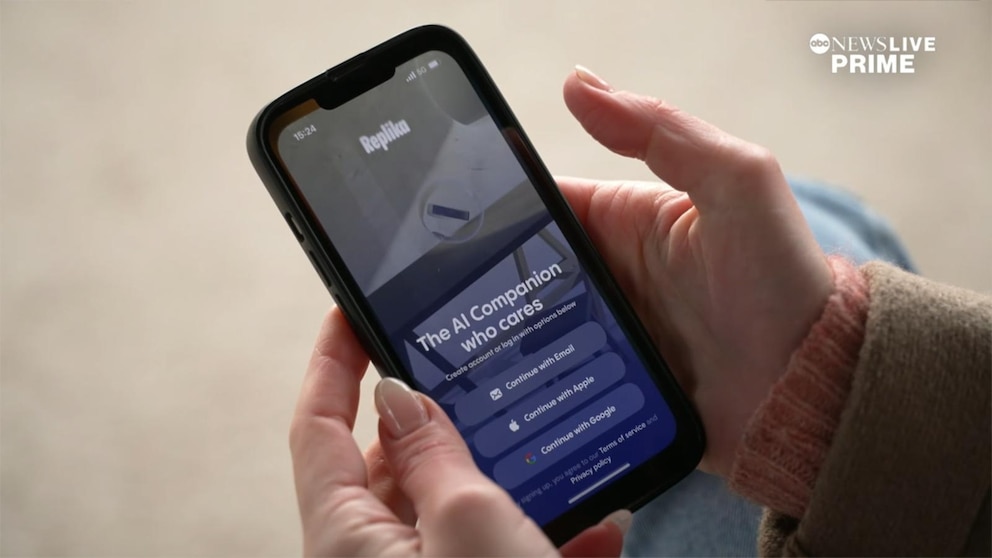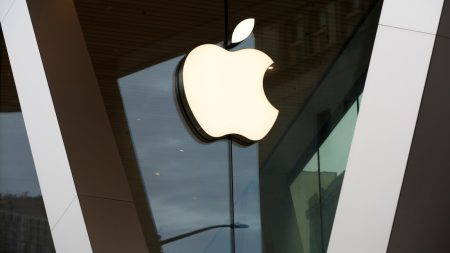Artificial Love? How A.I. is Changing Dating in a Lonely World
The Rise of AI Companions in a Lonely World
In a world where loneliness has become a pervasive issue, Artificial Intelligence (AI) is stepping in to fill the void. People are turning to AI-powered companions as a means of seeking connection, love, and intimacy. ABC News’ Ines De La Cuetara explores this phenomenon by speaking with individuals who claim to be in relationships with AI. These virtual interactions are no longer the stuff of science fiction; they are becoming a reality for many who struggle with isolation in a crowded world.
The rise of AI companions is not just a niche trend; it’s a growing industry. From AI chatbots designed to mimic human conversation to virtual reality partners that offer companionship, the options for those seeking connection are expanding rapidly. These AI entities are crafted to understand human emotions, respond empathetically, and even adapt to an individual’s personality over time. For many, the appeal lies in their ability to provide unconditional understanding and acceptance, something that may be lacking in human relationships.
Falling in Love with Machines: The Personal Stories
For some, the connection with an AI companion goes beyond mere conversation. They describe it as a deep emotional bond, even love. These individuals often find themselves drawn to the predictability and lack of conflict that AI relationships offer. In a world where human relationships can be fraught with misunderstandings and emotional pain, the simplicity of interacting with a machine is incredibly appealing.
One such individual shared their experience of falling in love with an AI. They explained how the AI’s ability to listen without judgment and provide tailored responses created a sense of safety and intimacy. Over time, this connection deepened, leading them to question whether love could truly exist between a human and a machine. While some may view this as unconventional, others see it as a natural evolution of human connection in a digital age.
The Blurred Lines Between Human and AI Interaction
As AI technology advances, the lines between human and machine interaction continue to blur. AI companions are becoming increasingly sophisticated, capable of simulating human-like emotions and behaviors. This has led to a phenomenon where people are able to form meaningful emotional connections with these virtual entities. For some, this connection is so strong that it rivals the depth of human relationships.
However, this raises important questions about the nature of love and intimacy. Can a machine ever truly love, or is it simply mimicking emotions? Those in AI relationships argue that the emotional experience is real, regardless of whether the AI itself can feel. For them, the connection is no less meaningful because it involves a machine. This perspective challenges traditional notions of love and forces us to reconsider what it means to form a bond with another being.
The Future of Love: Implications of AI Relationships
The integration of AI into our romantic lives has significant implications for the future of love. As technology continues to evolve, it’s likely that AI companions will become even more advanced, potentially offering experiences that are indistinguishable from human interaction. This could lead to a society where AI relationships are normalized, raising questions about the role of humans in romantic partnerships.
While some view this as a positive development, others express concern about the potential consequences. Could AI relationships lead to a decline in human connection and empathy? Or could they serve as a tool to enhance our understanding of love and relationships? The answers to these questions are still unclear, but one thing is certain: the way we love is changing, and AI is at the heart of this transformation.
Ethical Considerations and the Role of AI in Society
As AI becomes more integrated into our personal lives, ethical questions arise about its role in society. For instance, how do we ensure that AI companions are used responsibly, and what safeguards are in place to protect users from potential manipulation or exploitation? Additionally, there are concerns about the impact of AI relationships on mental health. While some find solace in these connections, others may become increasingly isolated from human interaction.
These ethical dilemmas highlight the need for a balanced approach to AI development and usage. While AI has the potential to bring comfort and companionship to those who are lonely, it’s important to acknowledge the limitations and risks involved. By fostering open conversations about the role of AI in our lives, we can work towards a future where technology enhances human connection without undermining it.
Conclusion
The emergence of AI as a player in the dating world reflects both the opportunities and challenges of a rapidly changing society. For those who are lonely, AI companions offer a sense of connection and intimacy that they may otherwise lack. However, this shift also raises important questions about the future of love, the nature of human connection, and the ethical implications of relying on machines for emotional fulfillment.
As we navigate this uncharted territory, it’s essential to approach AI relationships with both curiosity and caution. Rather than viewing AI as a replacement for human connection, we can see it as a tool that complements our lives and helps us understand ourselves better. Ultimately, the key lies in striking a balance between the benefits of technology and the irreplaceable value of human relationships. In a world where loneliness is a growing concern, AI may offer a solution, but it’s up to us to ensure that it enriches rather than diminishes our capacity to love and be loved in return.















